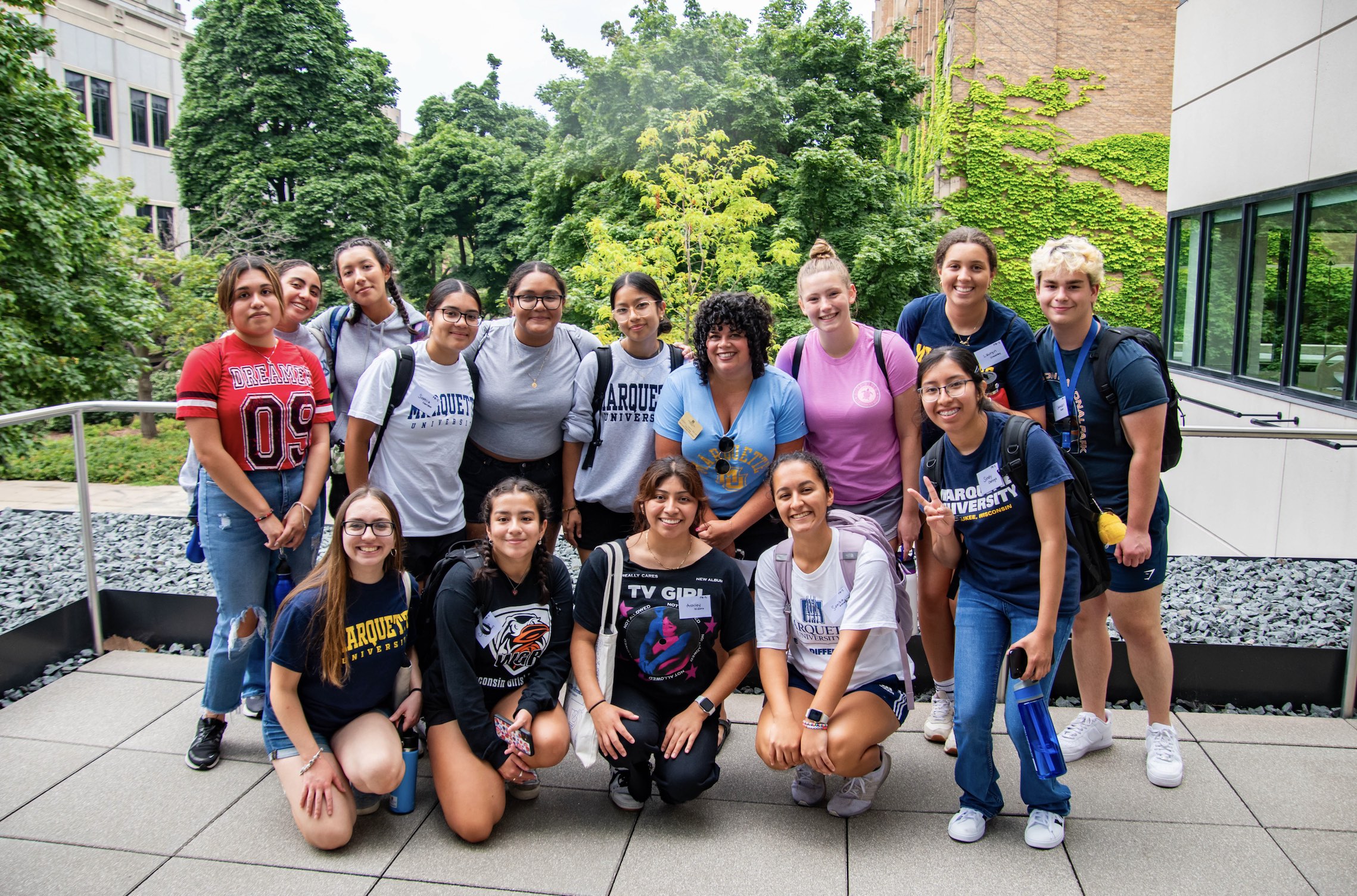Project BEYOND-2
Building Equitable Youth Opportunities for Nursing Diversity

Project BEYOND-2 exemplifies Marquette's Catholic, Jesuit identity by encouraging students from underrepresented backgrounds to pursue a rewarding career in professional nursing. Nursing students will join a community of belonging, as faculty, staff and leaders in the profession holistically assist them in achieving academic success.
Pre-admission intensive session for new freshmen
Project BEYOND-2 offers an intensive, on-campus, four-day summer session to begin socialization and readiness for college. The session focuses on note-taking, study skills, test-taking strategies, stress and time management, professional writing, using university resources, applying for scholarships and accessing faculty assistance.
Academic and personal support
Sessions include alternating structured and non-structured sessions and presentations from faculty, university leaders, support services and other community leaders. Non-structured sessions allow students to ask questions, request discussion topics and build community. Students get individualized support from mentor/adviser specialists who are also licensed RNs.
Tutoring
- BEYOND-2’s Nurse Tutor Specialist offers individual and group tutoring
- Free tutoring from the Academic Resource Center.
- BEYOND-2 will help coordinate group tutoring.
Nurse mentor program
Juniors and Seniors have the opportunity to be paired with a nurse mentor. Mentors are Marquette faculty and professional nurses from the community and local health care systems.
Experiential Leadership Development
- Volunteer opportunities
- Programming to address the social determinants of education and health